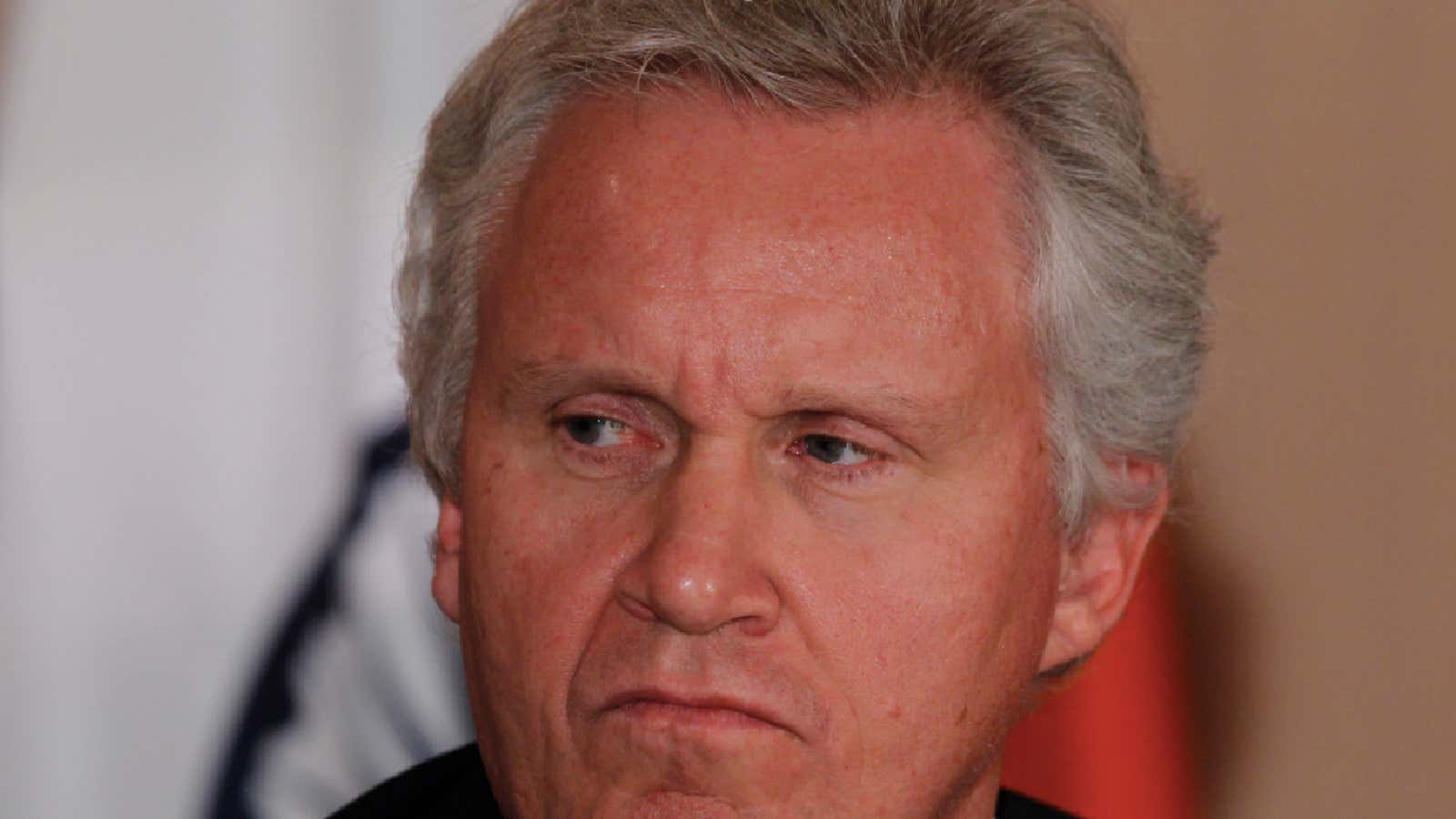GE posted better-than-expected fourth quarter results today, with net profits of $4.01 billion, up 13% from the fourth quarter of 2011. Revenue for the quarter was $39.3 billion, up 4%, bringing the 2012 total to $147 billion.
Though the industrial giant has been expanding sales of oil and gas production equipment in emerging markets, and CEO Jeff Immelt has planned $1 billion in cost cuts, one secret behind GE’s unexpectedly upbeat earnings is the company’s continued reliance on its financing business for profits.
GE still produces more plane engines and medical-imaging equipment than any other company in the world, and the corporation’s reputation is firmly staked on the turbines, locomotives and oil pumps it has been manufacturing for nearly a century and a half. But GE Capital, which represented 55% of GE’s earnings in 2007, and 45% last quarter (PDF), continues to account for an outsized, if slowly diminishing, portion of the company’s profits.
CEO Jeffrey Immelt said he wants to reduce GE Capital’s contribution to his company’s earnings to 35% by 2015, and he initiated the process by shedding GE’s bank stakes in Asia and selling off its commercial property holdings in America. GE Capital’s core business, now that it is slowly getting out of real estate, is corporate loans, consumer financing, and private-label credit cards. GE Capital’s revenue dropped 6% last year, to $46 billion, while revenue from GE’s industrial businesses rose 4%, to $111 billion.
The seeds for GE’s continued reliance on finance were planted many decades ago, when GE first ventured into lending (a business that quickly turned profitable, given the corporation’s access to cheap credit thanks to its AAA credit rating), and the phenomenon is telling of a broader economic shift over the last few decades, which has seen the growing financialization of the American economy.
GE Capital employs 50,000 employees today, and would be the fifth-largest commercial bank in America, ranked by assets, if considered as such. Yet since GE remains first and foremost an industrial company, its reliance on its financing business presents complications. As the WSJ points out,
The heavy reliance on GE’s lending business for profits highlights a conundrum faced by Chief Executive Jeff Immelt. His company is good at banking, but investors don’t value that business as highly as they do GE’s industrial units, which are struggling to post strong revenue growth.
